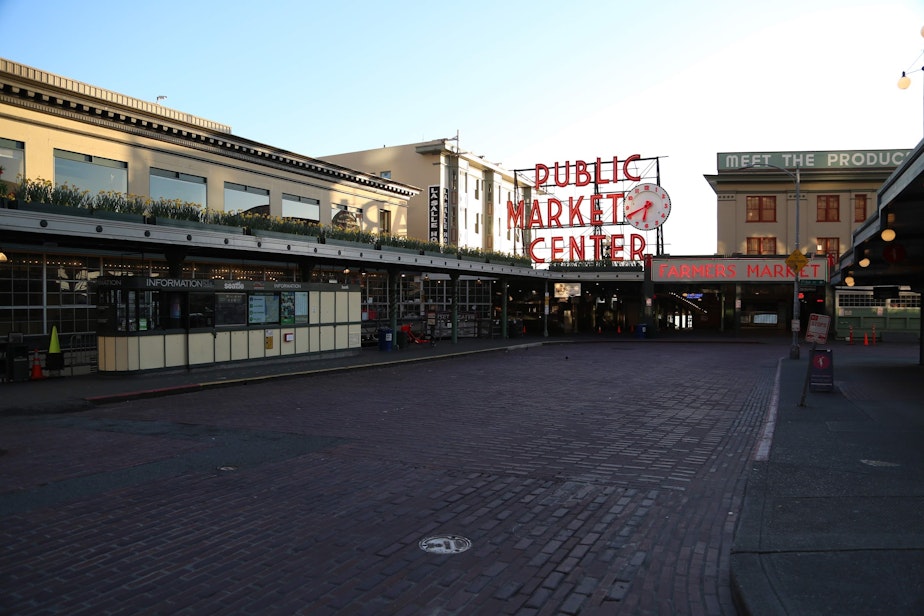Here's what Washington's order to stay home means to you amid the coronavirus crisis

Washington Gov. Jay Inslee has issued a statewide order for residents to stay at home for at least two weeks. But there are some exceptions.
Olympia correspondent Austin Jenkins told KUOW’s Angela King what this order does.
'Stay at home' to fight coronavirus decreed in Washington state
Austin Jenkins: It orders all people in Washington state, seven and a half million residents -- to essentially stay at home. But there are several exceptions.
You may leave to do essential activities. And essential activity would be going to the grocery store, going to the doctor, going to your job if you work for what's deemed an essential employer and you have an essential role there. This also closes all nonessential businesses unless they can have their workers working remotely. And that's effective midnight Wednesday, March 25.
The order also says that all people in Washington state shall immediately cease participating in all public and private gatherings in multi-person activities, whether that's for social, spiritual or recreational purposes, regardless of the number of people involved. Now, this doesn't apply to a family that's living together, but I will tell you that the governor said funerals, weddings. They're off for now.
Angela King: How is the state going to enforce this?
Jenkins: The state makes it a gross misdemeanor to violate a governor's emergency order. They're hoping they don't have to enforce it. But the governor's chief of staff said Monday night that if they're hearing reports that people are not complying, he has no doubt that the governor has asked law enforcement to step up their efforts. He said not necessarily arresting people, but asking people to disperse.
Sponsored
King: So right now, the order is in effect for 14 days. It could go longer, though.
Jenkins: It could. The governor in his remarks (Monday) night said that this is for a minimum of two weeks. It could be expanded, and his chief of staff said they chose two weeks hoping to see an impact, but that very likely some form of this will last longer than two weeks.
King: How will we know if this is actually working?
Jenkins: The secretary of health last night talked about the things that they're looking for: the number of new cases and the number of deaths -- are those rising or starting to level off? They're going to certainly be looking at this hospital issue -- are hospitals feeling the strain? Are emergency room visits up there going to be looking at data? They're supposed to get some this week. But, you know, they're not going to have all the answers in two weeks. And I think that that's the reality in all of these restrictions on our lives. I don't think they’re automatically going to go away, and we're back to normal in two weeks.
King: You were talking earlier about nonessential businesses having to close down, working online if possible. What are some of those?
Jenkins: So the essential businesses are restaurants and pharmacies. They will stay open. So they're saying "don't run to the grocery store right now and buy a bunch of stuff, because you're gonna be able to go to the grocery store." You can go out for a walk with your family. It's OK to get some fresh air. They just don't want people in groups and they want you staying close to home. And then there's also all of this essential infrastructure they call the "central critical infrastructure." And those are sectors like health care, public health, first responders, even in the food and agricultural business, communications, the media, the energy field. So there's all of these entities that are deemed essential and within that, essential jobs.





